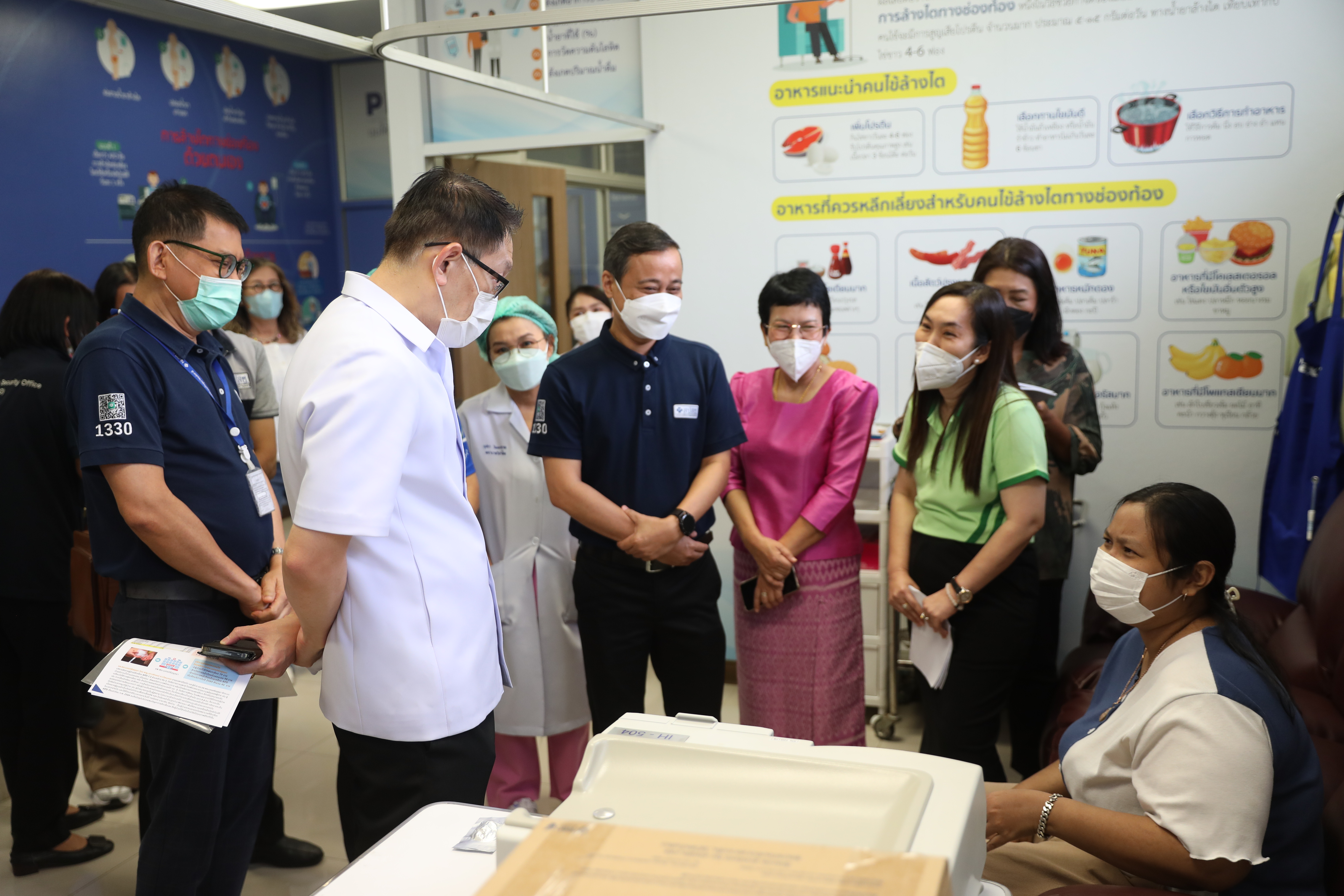
- Home
- DescriptionNews
APD eases the burden on kidney patients

APD eases the burden on kidney patients
The introduction of automated peritoneal dialysis (APD) into the Universal Coverage Scheme relieves the burden of patients living with end-stage kidney disease.
The Nephrology Society of Thailand reports that around eight million people in the country are living with kidney disease, with approximately 80,000 of these are in the end stage, and this group of patients has increased yearly.
One in 25 people with obesity and hypertension can precipitate kidney disease — prompting the Ministry of Public Health and relevant health authorities to promote healthy diets.
On the other hand, the National Health Security Office (NHSO) has continued to upgrade health benefits under Universal Coverage Scheme (UCS) to tackle the increasing prevalence of chronic kidney disease.
Recently, the NHSO introduced automated peritoneal dialysis (APD) into the scheme, which covers 47 million people in Thailand.
APD is a device that delivers and drains the dialysate automatically.
Patients can run the machine while sleeping, allowing them to rest fully at night.
It has been provided to patients with end-stage kidney disease as a home therapy option, reducing time and cost compared to hospital dialysis sessions.
.jpg)
Patients receiving APD said their quality of life is much improved, said the NHSO secretary-general Dr Jadej Thammatacharee.
They use APD once for between eight and ten hours a day, mostly while sleeping at night.
As they get good rest, they could be productive at work during the day.
To perform the therapy, hospital staff offer training to patients and their caretakers — who will be assisted once they are familiar with the machine.
Ease burden
Along with APD, the UCS covers all crucial treatments for end-stage kidney disease, such as hemodialysis and continuous ambulatory peritoneal dialysis (or home peritoneal dialysis) which are the common treatments among the patients.

Kidney transplant is also available for UCS beneficiaries. But only 600 patients can get this type of treatment each year as it relies on the availability of donated kidneys.
According to the NHSO record, the survival rates of patients undergoing hemodialysis and home peritoneal dialysis are not different — against the common perception that the first is more effective than the latter.
The method of APD is similar to continuous ambulatory peritoneal dialysis. The only difference is the first uses an automated machine that performs the treatment once a day.
The latter requires the patients to perform it between three to four times a day.
With this low frequency of task performance, APD eases the burden of patients, caregivers, and healthcare staff — providing more time to focus on emergency patients.
Free APD for all
Dr Jadej said that the NHSO will continue to improving treatment access for kidney disease patients.
His team vision the treatment to be accessible based on patients preference and the doctors’ guidance.
Each type of treatment suits different contexts health conditions, behaviors, lifestyle, and patients’ surrounding environment.
For example, elderly patients with multiple chronic diseases should not be treated with hemodialysis because they may experience adverse effects, including irregular low blood pressure that threatens their life.
.jpg)
APD fits patients who can’t continue with peritoneal dialysis because of abdominal wall defection, reducing the treatment’s effectiveness.
“We also want to reduce the waiting time for getting all treatment,” said Dr Jadej.
“Patients should also get the necessary devices used in the treatment, like APD, whenever they need them.”
He added that free APD is currently available for UCS beneficiaries.
But patients covered by the other two government healthcare schemes — Social Security Scheme (SSS) and Civil Servant Medical Benefit Scheme (CSMBS) — must pay out of their pockets for purchasing or renting the machine.
The priority should be given to beneficiaries of the Social Security Scheme, which covers all formal employees in Thailand, he suggested.
If these workers have end-stage kidney disease, they need to perform either hemodialysis (which requires them to be at the hospital three times a week) or home peritoneal dialysis (which requires them to perform the treatment every four to six hours).
This forces them to leave their jobs if the employers are not allowed to be absent from work.
“Free APD should be provided to those who need it regardless of their healthcare schemes,” said Dr Jadej.
////////

